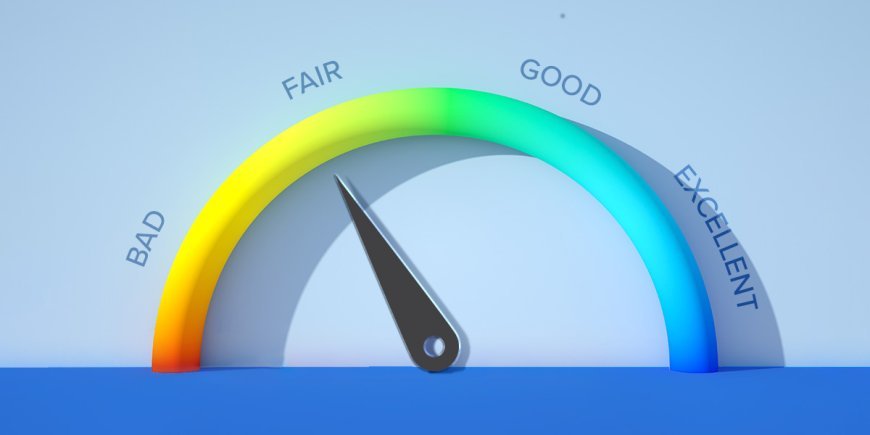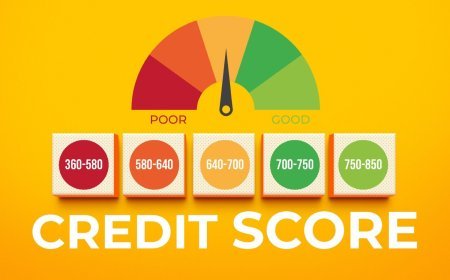Credit Score Myths Debunked: What Really Affects Your Score and What Doesn't
Credit scores are shrouded in more myths than ancient folklore, and these misconceptions cost people thousands of dollars in higher interest rates and missed opportunities. You've probably heard that checking your credit hurts your score, that you need to carry a balance on your credit cards to build credit, or that closing old accounts will improve your score. These widespread beliefs are not just wrong—they're actively harmful to your financial health. The credit scoring system, while complex, operates on logical principles that reward responsible financial behavior, but understanding what actually matters requires cutting through decades of misinformation spread by well-meaning friends, outdated advice, and companies with ulterior motives.

In This Article:
- The Most Damaging Credit Myths: Common misconceptions that actively hurt your credit score and financial health.
- How Credit Scoring Really Works: The five factors that actually determine your score and their relative importance.
- Smart Credit Building Strategies: Proven methods to improve your score without falling for expensive gimmicks.
- Credit Monitoring and Maintenance: How to track your progress and protect your score from identity theft.
- Advanced Credit Optimization: Sophisticated strategies for maximizing your score once you understand the basics.
These widespread beliefs are not just wrong—they're actively harmful to your financial health. The credit scoring system, while complex, operates on logical principles that reward responsible financial behavior, but understanding what actually matters requires cutting through decades of misinformation spread by well-meaning friends, outdated advice, and companies with ulterior motives.
The Most Destructive Credit Myths
Perhaps the most expensive myth is that carrying a balance on your credit cards helps your credit score. This misconception costs people thousands of dollars annually in unnecessary interest payments while providing no credit benefit whatsoever. Credit scoring models reward low credit utilization, not debt carrying. Paying your balances in full every month demonstrates responsible credit management and costs you nothing in interest.
Another harmful myth suggests that closing old credit cards improves your score by eliminating unused credit. In reality, closing accounts can hurt your score in two ways: it reduces your total available credit, potentially increasing your utilization ratio, and it may eventually reduce the average age of your accounts when the closed account falls off your credit report after ten years.
The belief that checking your own credit hurts your score prevents many people from monitoring their credit health. This myth confuses \"soft\" inquiries (when you check your own credit) with \"hard\" inquiries (when lenders check your credit for lending decisions). Soft inquiries have no impact on your score, and regular monitoring is essential for maintaining good credit health.
Many people believe that paying off collections or charge-offs will immediately improve their credit scores. While paying these debts is often the right thing to do morally and legally, the negative marks typically remain on your credit report for seven years regardless of payment status. The impact on your score may not change significantly just because you've paid the debt.
Understanding the Real Credit Factors
Credit scores are calculated using five main factors, each with different levels of importance. Payment history accounts for 35% of your FICO score and represents the most critical factor. This category tracks whether you pay your bills on time, how late your payments are when you miss them, and how recently any late payments occurred.
Credit utilization comprises 30% of your score and measures how much of your available credit you're using. The scoring models prefer to see utilization below 30% of your credit limits, with even lower utilization (under 10%) providing optimal scores. This calculation includes both individual card utilization and overall utilization across all cards.
Length of credit history represents 15% of your score and considers both the age of your oldest account and the average age of all your accounts. This factor explains why keeping old accounts open, even if you don't use them regularly, can benefit your score over time.
Credit mix accounts for 10% of your score and reflects the variety of credit types you manage successfully. Having both revolving credit (credit cards) and installment loans (auto loans, mortgages) can slightly improve your score, though this factor is less important than the others.
New credit inquiries make up the final 10% of your score and track how frequently you apply for new credit. Multiple inquiries in a short period can lower your score temporarily, but the impact is usually minimal and fades quickly for responsible borrowers.
Smart Credit Building Strategies
Building excellent credit requires consistent, responsible behavior over time rather than quick fixes or gimmicks. The foundation of good credit is simple: pay all your bills on time, every time. Set up automatic payments for at least the minimum amounts to ensure you never miss a payment due to forgetfulness or busy schedules.
Keep your credit card balances low relative to your credit limits, ideally below 10% of your available credit. If you have high balances, focus on paying them down rather than spreading the debt across multiple cards. Some people find success in making multiple payments per month to keep their reported balances low.
Avoid closing old credit cards unless they carry annual fees that outweigh their benefits. If you're concerned about overspending, remove the cards from your wallet rather than closing the accounts. You can even set up small, automatic charges like subscription services to keep the accounts active.
When you need new credit, shop for rates within a focused time period. Credit scoring models typically count multiple inquiries for the same type of loan (auto loans, mortgages) as a single inquiry if they occur within 14-45 days, allowing you to rate shop without damaging your score.
Credit Monitoring and Protection
Regular credit monitoring helps you track your progress and identify potential problems before they become serious. You're entitled to free credit reports from all three major bureaus annually through annualcreditreport.com, and many credit card companies now provide free credit scores to their customers.
Review your credit reports carefully for errors, which are surprisingly common. Dispute any inaccuracies you find with both the credit bureau and the company that reported the information. Successful disputes can improve your score quickly if the errors were significantly impacting your credit.
Identity theft can devastate your credit score, so monitor your accounts regularly for suspicious activity. Consider freezing your credit reports if you're not actively applying for new credit, as this prevents new accounts from being opened in your name without your explicit permission.
Be wary of credit repair companies that promise to fix your credit quickly for a fee. Most of what these companies do, you can do yourself for free, and many use questionable tactics that can actually harm your credit in the long run.
Advanced Optimization Techniques
Once you understand the basics, several advanced strategies can help optimize your credit score. The \"15/3 rule\" involves making one payment 15 days before your statement closes and another payment three days before it closes, potentially reducing the balance reported to credit bureaus.
Consider requesting credit limit increases on existing cards rather than opening new accounts. Higher credit limits reduce your utilization ratio without adding new inquiries to your credit report. Many card companies allow online requests for limit increases with instant decisions.
If you have limited credit history, consider becoming an authorized user on a family member's account with excellent payment history and low utilization. This can help establish credit history, though the impact varies depending on the card issuer's reporting practices.
For those with thin credit files, secured credit cards provide a path to building credit. These cards require a security deposit but function like regular credit cards and can help establish positive payment history when used responsibly.
Long-Term Credit Health
Excellent credit is built over years through consistent, responsible behavior rather than quick fixes or manipulation tactics. Focus on developing good financial habits that naturally support good credit: paying bills on time, keeping debt levels manageable, and avoiding unnecessary credit applications.
Remember that credit scores fluctuate naturally as your financial situation changes. Don't obsess over small month-to-month variations, but do pay attention to significant changes that might indicate errors or problems requiring attention.
Your credit score is a tool that reflects your creditworthiness to lenders, not a measure of your worth as a person. Use it strategically to access better interest rates and financial opportunities, but don't let it become a source of stress or anxiety.
Understanding how credit scoring really works empowers you to make informed decisions that support your long-term financial health. By focusing on the factors that actually matter and ignoring the myths that can lead you astray, you can build and maintain excellent credit that opens doors to better financial opportunities throughout your life.
What's Your Reaction?
 Like
0
Like
0
 Dislike
0
Dislike
0
 Love
0
Love
0
 Funny
0
Funny
0
 Angry
0
Angry
0
 Sad
0
Sad
0
 Wow
0
Wow
0











































